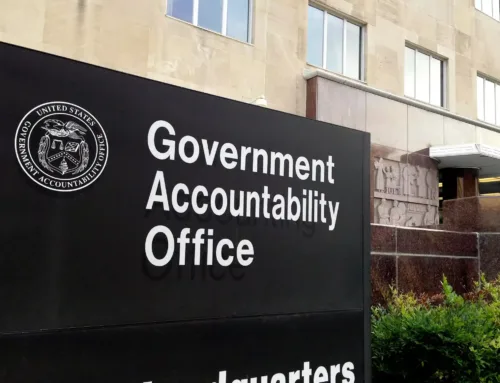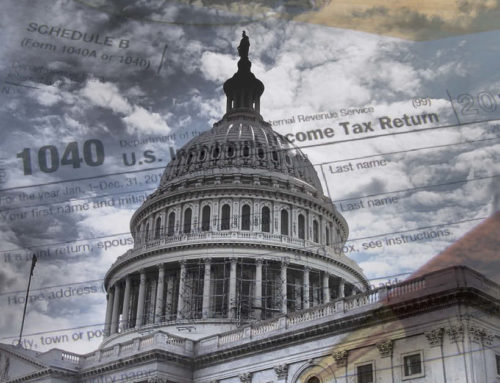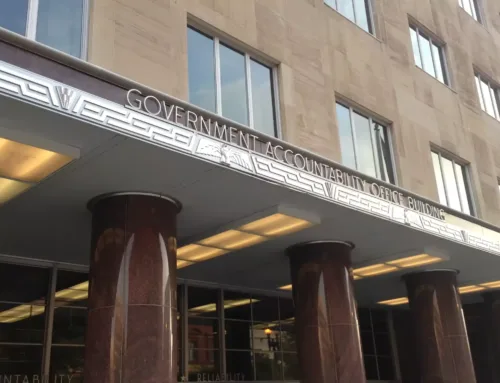Monday marked the end of the fiscal year 2018 shutdown showdown. Except it didn’t.
Now all eyes are looking at February 8 when the continuing resolution to fund the government expires again. With so much concentration on immigration-related issues it’s easy to forget how we got here, four months (one third of the way) into the fiscal year and with still no agreement on the total amount we’ll spend running the government this year.
In the School House Rock version of how Congress funds the government, the president proposes a budget on the first Monday of February, Congress invites the director of the Office of Management and Budget as well as cabinet secretaries to come discuss the priorities within that budget, and then Congress moves on to the appropriations process.
The budget committee sets the overall spending levels, and each appropriations subcommittee holds hearings to shape the final appropriations bills over the spring and summer, and all twelve bills are passed by both the House and Senate before the beginning of the fiscal year on October 1. While that has not happened since 1994, it is important to point out that it is not an impossible task.
This year, the first three quarters of calendar 2017 were spent (without success) on efforts to repeal the Affordable Care Act aka Obamacare, an important political goal for the majority, but one with no deadline other than the expiration of budget reconciliation at the end of fiscal year 2017 (which was also a political calculation to enable passage with a simple majority in the Senate). Most of the last quarter was dedicated to getting a tax package (any tax package!) over the goal line – again, while we would be the first to say that an overhaul of the tax code was overdue, there would not have been any consequences of letting that task wait. Indeed by using reconciliation again, they had until September 30, 2018. So as not to distract or engage in non-tax related horse-trading, figuring out spending levels were left by the wayside.
Of course, this ignores the fact that there already are spending levels set for fiscal year 2018. It’s all right there in the Budget Control Act of 2011. If lawmakers chose, they could take the legally set caps for FY2018 and debate how to divvy up the pot. It’s just most lawmakers on both sides of the aisle would like to spend more. Unlike when the 2011 act was originally passed, the caps for FY18 are actually a few billion less than the level of spending enacted in FY17. That’s because lawmakers already renegotiated the deal to raise spending caps in the Bipartisan Budget Act of 2015. But in that act they could only find enough changes in spending or increases in revenue to “offset” two years of cap increases. So lawmakers are now trying to figure out how much more to spend than they originally allowed themselves. This will likely be in the neighborhood of hundreds of billions of dollars and it appears that unlike previous cap-busting deals, it won’t be offset. Even with gimmicks.
Even after lawmakers hammer out the budget deal, they still have to write the dozen spending bills. The House has passed all of theirs, and the Senate Appropriations Committee has their version, but it will take a couple weeks to haggle out the final versions. So the current CR is not likely to be the last and even if it is delayed until February 12, the president’s FY2019 budget request will likely come out before the book is closed on FY2018.
In case you forgot, like a budgetary grenade being thrown in the mix, the nation’s finances are likely to hit the debt ceiling soon and that will precipitate another knockdown, drag out fight. It was a debt ceiling fight that originally brought us a focus on reining in deficits and the BCA of 2011.
To be fair to the broken budget system, this year was extraordinary because leadership chose to sideline their one constitutionally mandated yearly duty – funding government – until late in the year. And the typically and understandably delayed submission of a new president’s budget request doesn’t help. But even in the best of times the budget process hasn’t worked.
Since the current budget process was created in 1974, there have been only four years when all appropriations bills were done on time. It is clear that under presidents of both parties, with Democrats or Republicans running the show in Congress, or with divided government, the budget process doesn’t work. The solution to some lawmakers is to bring back earmarks – the line item special interest provisions that advance projects or programs on the basis of political muscle over project merit. Leaving aside our many concerns about earmarks, would it work?
Earmarking is an insane place to start to fix the budget and appropriations process, not simply because the last time all bills were passed on time goes back to before the go-go years of earmarking that started in the mid-nineties. Before lawmakers can even talk about earmarks they need to grapple with a broken budget process. Everything should be on the table: biennial budgeting, stronger Budget Committees, legally binding budget resolutions, penalties for unauthorized programs, oversight requirements, shift to accrual accounting, sunset commissions. You name it, Congress should pursue it.
We get it, Congress. Getting people a robust level of government spending cake they want to consume at a level of revenue (taxation) voters will stomach is tough. But refusing to adhere to spending caps already agreed to, being unwilling to cut less important programs to pay for increases in more vital areas, or simply throwing in the towel and grabbing your own little project by bringing back earmarks, isn’t going to cut it. Nobody said legislating was supposed to be easy. It’s your job. So make government work, or get out of the way for those who will.










